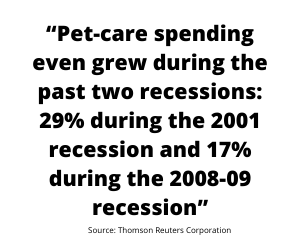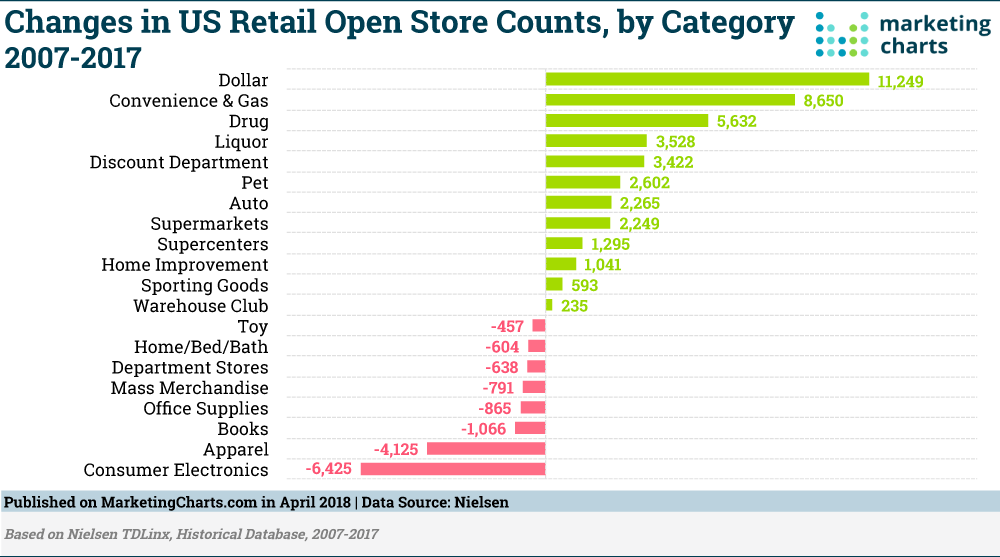Economic slowdowns often devastate businesses and sometimes entire industries. Business leaders and entrepreneurs often lose sleep wondering how their businesses can make it through the rough economic climate. While everyone else is complaining about how badly their business is doing because of the economy, you may be able to enjoy business growth and profit increases with a recession-proof business.
Believe it or not, there are businesses that not only survive a recession but actually thrive. In this article, we will present 12 recession-proof businesses that you can easily start that have a chance to thrive in a down economy.
1. Auto Repair and Maintenance
Even though traveling has decreased during the coronavirus pandemic, people still need their cars to be operational. During the lockdown in the United States, automotive repair was considered an essential business, and local and corporate auto repair garages were allowed to remain open.
But with delivery services’ success in recent years, and travel declining due to a slow economy, why does the auto repair industry still thrive during a recession? The answer may be that people would rather repair their car than purchase a new one.
During recessions, auto makers and dealerships struggle, as people do not feel comfortable taking on unnecessary debt. Annual new car sales decreased by an order of magnitude, from about 16 million in 2005 to less than 10 million in 2008, while automakers General Motors and Chrysler were filing for bankruptcy.
Being able to repair automobiles is valuable during a recession because it enables people to keep driving their current vehicles instead of purchasing a new one. If you are handy under the hood, an automotive repair business may be a good business to start.
2. Recruiting/ Resume Writing Services
During a recession, massive job losses are inevitable. Within 2 months of the lockdown in the U.S. during the coronavirus outbreak, job loss claims topped 36 million. This is compared to the 8.8 million lost during the recession beginning in 2007, according to the Bureau of Labor.
Because so many people find themselves out of work during a recession, being able to help people find a job is valued. Any business that involves recruiting, resume writing, or career coaching usually thrives in a down economic climate.
You will need to obtain a certification and sharpen your skills in order to succeed. You can also join organizations such as the National Resume Writers’ Association and the Professional Association of Resume Writers and Career Coaches.
3. Home Maintenance
No matter how bad the economy gets, homes will continue to need repairs and improvements. During a financial crisis, homeowners often put off some home repairs or attempt to repair things themselves. However, not all jobs can be done by novices.
A home maintenance business is nearly recession-proof, as the need for plumbing, lighting, structural, heating, and air, as well as many other home projects will still be there despite a slow economy. If you are able to offer quality repairs for a competitive price, this business will be able to withstand even the harshest of economic climates.
Keep in mind that renovations tend to stall or stop during a recession. Smaller renovations projects such as countertops replacements, and window coverings continue to be in demand. But larger projects such as bath and kitchen remodeling usually stop altogether, as homeowners put off these more costly changes.
If remodeling is a part of your home improvement business, you will have more luck during an economic recovery. The demand for remodeling contractors spikes in the years following a recession.
According to Joint Center, the number of residential remodeling contractors reached 716,000 by 2012, up from 652,000 at the peak of the market in 2007. General remodelers increased their number over 12% to 263,000, and special trade remodelers increased 8.5% to 450,000. Overall, the total number of contractors serving the remodeling industry increased almost 10% from 2007.
4. Consignment
Historically, second-hand retailers win big during recessions. According to Reuters, in August of 2009 the National Association of Resale & Thrift Shops (NARTS), which claims to be the world’s largest resale trade association, said a survey of its membership about second quarter sales in 2009 compared to the same period in 2008 showed increasing turnover in the second-hand sector.
“Of the 263 stores that responded, 64.1 percent said sales increased — with an average increase of approximately 31 percent — 11.5 percent said sales were about the same and 24.4 percent had a decrease in sales,” it said.
Consignment sellers thrive in a recession for one primary reason; they provide a bargain for consumers. Since most people cut back on spending, one of the best ways to continue to buy the products you want and not go broke is to purchase gently used items.
Used clothing, second hand books and children’s clothing are among the most popular consignment items. You don’t need to open a consignment storefront to start this type of recession-proof business. You can start an online consignment shop as well as sell products on eBay.
The only challenge to overcome is storing your inventory. You may be able to rent storage space at a low cost. You may also be able to house the items in your garage or basement. Just be sure that the items stay in good condition while storing them, as your buyers will not be able to inspect your products in person before purchasing.
5. Pet Care Services
We are living in the age where adults want to be parents of animals before they become parents of actual humans. This trend means that the need for pet food, toys, healthcare, pet groomers, and other services will be in demand no matter what the economic climate may be.
68% of U.S. households own a pet, according to the National Pet Owners Survey. That’s about 85 million U.S. families. This figure has increased around two percentage points annually since 2011. But spending on those pets has increased almost 7% annually.
Meanwhile, spending on veterinary care is growing especially fast. From 1991 to 2015, it shot from $4.9 billion to $35 billion. For perspective, that’s three times faster than U.S. gross domestic product grew over the same period.
Pet-care spending even grew during the past two recessions: 29% during the 2001 recession and 17% during the 2008-09 recession. Overall, spending on pets in the U.S. has gone up every year since 1994. And it’s grown 4.6% annually over the past 10 years, or three times faster than overall consumer spending.
Any pet care business has the opportunity to thrive during a recession. The desire that people have to care for their loved ones extends to those with four legs. If you are good with animals and understand pet ownership, starting a business in this industry will give you an opportunity to do what you love while helping other members of the animal kingdom.
6. Online Education Business
Online education has been on the rise for nearly 15 years. Colleges and universities have taken advantage of technology to make their classes and courses available to anybody anywhere. Much of modern life takes place on mobile devices, and the importance of mobile-friendly online learning continues to grow. At least 79% of college students completed some coursework on their mobile devices.
But you don’t need to be a professor to teach online. You can take any skill you have and teach, tutor, or coach students online. Starting your own online education business isn’t as hard as it seems. You just need a knack for teaching, a laptop, and willing students.
Whether it is giving guitar lessons, tutoring mathematics, or teaching a new language, just about anything can be taught virtually. Keep in mind that during a recession, the demand for learning marketable skills dramatically increases. So if you want to become an online educator, you may want to make sure that you choose a subject that will help your students succeed in their career or business.
7. Amazon Resellers
Over the years, Amazon.com has built itself to be its own recession-proof business. It survived the dot-com recession of 2000, its stock only dropped 8% while the entire market was down 36% during the 2007 recession, and was in a position to dominate during the coronavirus pandemic of 2020 as the reliance on delivery of essential and non-essential items grew.
So if Amazon has established an infrastructure that has been able to shrug off economic downturn, why not use it to build your own recession-proof business? Enter the Amazon Reseller business. By using the Amazon Marketplace, entrepreneurs can partner with the 2nd largest retailer in the world to sell their products.
Being an Amazon Reseller, you can put your products in front of tens of millions of Amazon shoppers. You can even do it without keeping inventory in your home by using Amazon Fulfillment. Just like any ecommerce business, however, there will be competition, but if you take the time to improve your positioning, your business could quickly thrive.
8. Digital Marketers
Competing for the attention of social media users is a challenge for any business. However, it becomes even more difficult during a recession. All businesses go into survival mode when economic challenges arise, and the only way to survive is to close as many sales as possible.
This is where a good social media manager can make the difference. All digital marketers who are able to increase brand awareness as well as drive sales become invaluable. Whether it is on social media, through SEO, or email campaigns, any business that can drive digital sales can expect to be busy during recessions.
Companies now realize that increasing marketing efforts pays off when others are decreasing. In the 1990-91 recession, Pizza Hut and Taco Bell took advantage of McDonald’s decision to drop its advertising and promotion budget. As a result, Pizza Hut increased sales by 61%, Taco Bell sales grew by 40%, and McDonald’s sales declined by 28%.
If you understand how to market online and can help brands of all sizes grow their business, becoming a digital marketer is a great business to start.
9. Sweets and Treats Sellers
When recession and economic slowdowns occur, many people live in fear and worry about the future. This constant negative rumination causes those individuals to seek comfort; often in food. It appears that producing sweets, treats, and other comfort foods can possibly be a recession-proof business. The previously mentioned items have been known to sell well during recessions.
Profits in the first three months of 2009 at Hershey Co., the nation’s second-largest candy maker, surged 20 percent. In more recent times, during the lockdown of 2020, Americans were clearly treating themselves. Popcorn sales rose nearly 48% in the week ended March 14, compared with a year earlier, while pretzel sales were up 47%, and potato chip sales surged 30%, according to Nielsen data.
If you love to bake cookies, cupcakes, or any other tasty snack, you may have a recession-proof business on your hands. be able to launch your own business selling baked goods. In the past, to sell baked items would require a potential entrepreneur to open up a bakery. These days, anyone can begin selling goods online to friends, family, and strangers using visual platforms such as Instagram and Pinterest.
10. Baby Product Suppliers
During a recession, people’s priorities change. One of the things that becomes increasingly more important is the lives of the children who are too young to fend for themselves. This is why businesses that specialize in offering baby products continue to succeed even during a recession.
The baby care market is composed of different segments and products, such as wipes, disposable diapers, feeding accessories, body care products, and that’s just the beginning. The entire baby care segment is a $72 billion industry.
Providing baby products that you create or resell is a great way to make money during a recession. Historically, companies like Procter & Gamble and Pampers have had the baby care market cornered. But now, with the rise of Instagram Business, just about anyone can create a business and sell directly to their target market.
11. Discount Retailer
When cash is tight for most households, the one thing many people seek is a good deal. Any business that is able to offer everyday products at a discount often becomes the place to go for most consumers. We witnessed this during the Great Recession with retailers such as Dollar Tree and Dollar General stores.
Between December 2008 and December 2011, for instance, shares of Dollar Tree soared nearly 200% during the Great Recession, while the benchmark S&P 500 gained just 39% over the same time.
Source: Marketchart graphics
The incredible thing about becoming a discount retailer is the possibility of thriving in recession as well as expansion. The discount retailer Dollar General went public in 2009 during some of the darkest days of the Great Recession. However, the company continued to grow once the economy bounced back.
In 2019, the company revealed that it was on track to open 975 stores and 1,000 by the end of 2020 — or 20 stores each week. That’s in addition to the more than 16,000 locations it already has, which is more than McDonald’s in the U.S. and more than Walmart globally.
12. Freelance work of all kinds
One of the most devastating consequences of an economic recession is the amount of jobs that are lost. A stated before, well over 30 million jobs were lost in the U.S. within months of the 2020 pandemic. The challenge these businesses face is how to get the job done, with f people on staff.
The answer for many is to hire contract employees or freelancers. Freelance businesses thrive during a recession because these individuals can help a business achieve its goals while paying less than it would cost for a full-time employee. Businesses save money by not having to pay for insurance, payroll taxes, as well as training, development, etc.
If you have any skill that is valuable to a business, you can find freelance work anywhere. As a freelancer, you will have to find ways to acquire healthcare for yourself and family. You will also be responsible for your own retirement, as freelancers do not qualify for pensions or participate in a 401k.
13. Child Care Services
Child care is a life essential for families with small children. The demand for child care usually increases during the summer months when most children are out of school. But during a recession, the need for people and businesses that offer child care services stays consistent.
There may be opportunities in this area in the 2020’s. Reports show that the number of child care workers and services are decreasing despite the fact that the demand for these services has not waned. Entrepreneurs interested in starting any kind of child care services will most likely experience faster growth due to demand and little to no drop in demand when a recession hits.
Conclusion
Every business owner must learn to prepare for and how to navigate through the different economic cycles. We must learn how to make sure that we focus on stabilizing and increasing sales during a recession. Some other business owners, however, will be able to whether a rough economic climate by starting a business that is built to withstand the negative affects most recessions bring.
This article was originally published in June 2020 but has been updated and expanded.














Pingback: 10 Successful Companies That Started During a Recession - StartUp Mindset
Pingback: 4 Disadvantage of Starting a Business in a Recession - StartUp Mindset
Pingback: Cómo iniciar un negocio en una recesión - MundoEmprendedor.Online
Pingback: 6 formas de preparar una empresa para una recesión - MundoEmprendedor.Online
Pingback: 5 Ways to Increase Sales During a Recession - StartUp Mindset
Pingback: 5 Ways a Recession Affects Small Businesses - StartUp Mindset
Pingback: 5 Products That Sell the Best During a Recession - StartUp Mindset
Pingback: Fascinating Methods & Tactics That Can Help Your Internet Venture Grow ·
Pingback: 13 Recession-Proof Businesses That Thrive in a Down Economy - مجله خبری مد و استایل - مد و استایل
Pingback: 13 Recession-Proof Businesses That Thrive in a Down Economy – Joseph O'Dierno Buffalo
Pingback: Best and Worst Time to Start Your Company - StartUp Mindset
Pingback: 12 Recession-Proof Businesses That Thrive in a Down Economy | Urban Bluprint